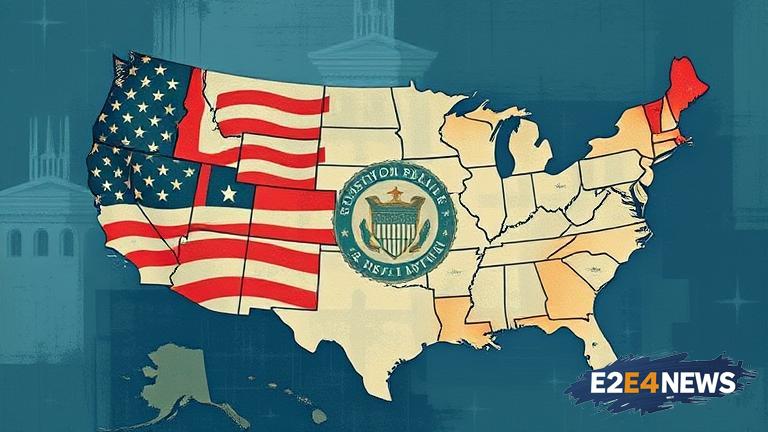The US State Department has recently announced a new policy requiring visa applicants from certain countries to pay a bond as part of their application process. This move is intended to reduce the number of visa overstays and encourage compliance with US immigration laws. The bond policy will apply to applicants from countries with high rates of visa overstays, as identified by the Department of Homeland Security. The amount of the bond will vary depending on the country of origin and the type of visa being applied for. The policy is expected to affect thousands of visa applicants each year, particularly those from countries in Africa and Asia. The US government has been seeking ways to reduce visa overstays, which have become a significant concern in recent years. According to official statistics, over 600,000 visa holders overstayed their visas in 2020 alone. The new policy is seen as a way to hold visa applicants accountable for their actions and to ensure that they comply with the terms of their visa. The bond will be refundable if the visa holder departs the US on time and complies with all relevant laws and regulations. However, if the visa holder fails to depart or comply with the terms of their visa, the bond will be forfeited. The policy has been met with mixed reactions, with some arguing that it is a necessary measure to prevent visa abuse, while others see it as an unfair burden on legitimate visa applicants. The US State Department has emphasized that the policy is not intended to discourage legitimate travel to the US, but rather to prevent abuse of the visa system. The policy is part of a broader effort by the US government to reform its immigration system and to ensure that it is fair, efficient, and secure. The US has a long history of welcoming immigrants and visitors from around the world, and the new policy is seen as a way to balance this tradition with the need to protect national security and prevent abuse of the immigration system. The bond policy will be implemented in phases, with the first phase targeting applicants from countries with the highest rates of visa overstays. The US State Department will work closely with the Department of Homeland Security and other agencies to implement the policy and to ensure that it is effective in reducing visa overstays. The policy is also expected to have implications for US businesses and organizations that rely on foreign workers and visitors. Some have expressed concerns that the policy could discourage foreign investment and tourism, while others see it as a necessary measure to protect American jobs and national security. The US government has emphasized that the policy is not intended to harm legitimate businesses or organizations, but rather to prevent abuse of the visa system. The policy is part of a broader effort by the US government to reform its immigration system and to ensure that it is fair, efficient, and secure. The US has a long history of welcoming immigrants and visitors from around the world, and the new policy is seen as a way to balance this tradition with the need to protect national security and prevent abuse of the immigration system. The bond policy is expected to be implemented in the coming months, and it is likely to have significant implications for visa applicants and US immigration policy as a whole. The US State Department has emphasized that the policy is subject to change and that it will continue to monitor its effectiveness and make adjustments as necessary. The policy has also sparked debate about the role of immigration in the US economy and society, with some arguing that it is essential for economic growth and cultural diversity, while others see it as a threat to national security and American jobs. The US government has emphasized that it is committed to finding a balance between these competing interests and to ensuring that the immigration system is fair, efficient, and secure. The bond policy is seen as a step in this direction, and it is likely to be watched closely by policymakers, businesses, and individuals around the world.
